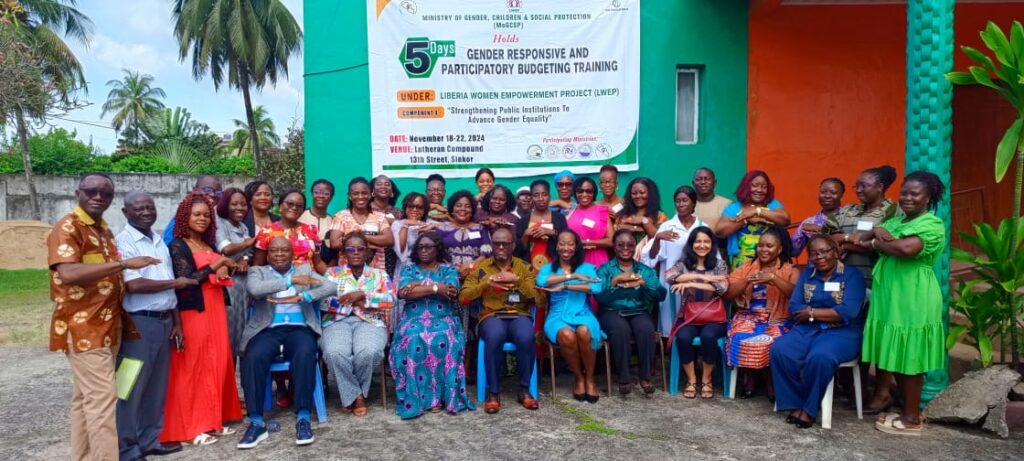By: Aaron Kubahn
Gbarnga, Bong County – The Ministry of Gender, Children, and Social Protection (MoGCSP) has initiated a two-day training on women empowerment and gender-based violence (GBV) for Gender County Coordinators and Social Workers in Gbarnga, Bong County.
The workshop, which convened participants from all 15 counties of Liberia, is part of the $44.6 million World Bank-funded Liberia Women Empowerment Project (LWEP). It features brainstorming sessions, group presentations, and training aimed at reshaping gender perceptions and promoting equality in service delivery.
Starting on Wednesday, December 4, and concluding on Thursday, December 5, 2024, the workshop focuses on equipping participants to monitor, track, and evaluate project outcomes. It also provides training on conducting gender analysis, understanding GBV referral pathways, and preventing and responding to GBV in workplaces and communities.
Focus on Impact and Implementation
Speaking on behalf of Gender Minister Gbeme Horrace-Kollie, Grace T. Kortu, Head of the Women Empowerment Division, emphasized the importance of the initiative. “This project should not be business as usual – it must deliver real impact,” she stated. She urged participants to take the training seriously and highlighted its potential to foster economic empowerment and self-reliance among Liberians.
Kortu encouraged participants to ensure that knowledge gained from the workshop is effectively shared within their respective counties, adding, “What you learn here must translate into meaningful change in your communities.” She also stressed the importance of expanding the project’s benefits to marginalized and hard-to-reach areas.
Broader Goals of the Initiative
Regional Gender Coordinator Viola Cooper-Teamah expressed optimism about the workshop’s outcomes. She urged participants to remain proactive and impactful in their roles, stating, “This training is meant to equip you with knowledge that must be shared, not shelved.”
The project targets six counties—Gbarpolu, Bomi, Cape Mount, Grand Gedeh, Rivercess, and Montserrado—reaching 267,200 beneficiaries across 750 communities. Of these, 36,000 women are expected to benefit directly from the livelihood and grant components.
Under Component 4, the initiative focuses on institutional capacity building, supporting the MoGCSP and the Ministry of Agriculture to generate sex-disaggregated data and implement gender-focused programs aligned with national policies. The project also aims to foster positive social norms, improve health and education services, promote resilient livelihoods, and strengthen public institutions to advance gender equality.

